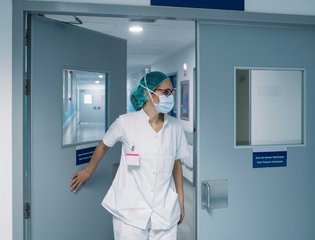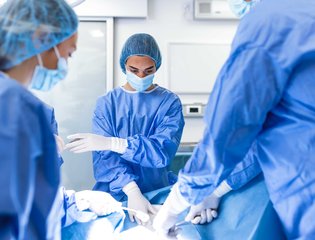Recovering from ovarian cancer surgery
You will spend three to seven days in hospital after ovarian cancer surgery.
When the ward staff feel you are fit enough, and any pain you have is under control, you will be able to return home. Most women are discharged from hospital three to four days after surgery.
Prior to being discharged you should receive a visit from a physiotherapist who will go through some basic, gentle exercises with you. You will be asked to do these at home to help assist your recovery.
Recovery at home from ovarian cancer surgery
Much like your time in hospital, your recovery at home with depend on the type of ovarian cancer surgery you have had and if there are any post-operative complications, which might delay things a little. Be prepared to have a recovery period that can last anywhere between six and twelve weeks. Remember, every patient is different and the amount of time it takes to recover will vary from person to person. Try not to put pressure on yourself if your recovery time is longer than expected, and your medical team is there to support you if you have any concerns or questions.
How much time off work will I need after ovarian cancer surgery?
You will need at least eight weeks off work after ovarian cancer surgery. You may need some more time if you start chemotherapy for ovarian cancer so it’s a good idea to have a conversation with your employer about this as soon as you can. Visit the Resources section for more information about managing work and a cancer diagnosis.
Changes to your daily routine
The amount of time you should avoid certain activities during recovery will depend how extensive your surgery was. Prior to being discharged your physiotherapist or specialist nurse will let you know what activities you can and cannot do during the stages of recovery from ovarian cancer surgery.
When back home you will need to make some adjustments to your everyday routine. For example, your care team will advise you to avoid strenuous tasks and physical activities as these can put pressure on your stitches and abdominal muscles. Macmillan advises avoiding heavy lifting for at least 12 weeks. Try not to lift even small and seemingly light things such as a full kettle or a hairdryer, as doing could put pressure on your body.
Driving is another activity that could put strain on your wound and you will not be able to drive for six to eight weeks after the operation. Exactly how long it takes for you to be safe and comfortable driving again will depend on how extensive the surgery was and how well you’re healing. Contact your insurance company to check you’re covered before driving again as some policies will not insure drivers for a number of weeks after surgery.
Please visit our Resources page for more information and advice on the practical aspects of diagnosis and recovery.
You will probably be advised to wait at least six weeks after your operation before having sex with your partner again. This will give your body time to heal.
If you hadn’t yet been through the menopause, surgery to remove both ovaries will bring on an early (or surgical) menopause straight after the operation. The symptoms experienced following surgery will vary from person to person. Your GP or oncologist can help you decide on a plan to manage any symptoms you may experience. Visit Longer term effects of surgery and Advice for younger women to find out more about managing early menopause.
Follow-up appointments
You will be given follow up appointments in the weeks immediately after your surgery. These are to inspect your wound and stitches and monitor your recovery. At these appointments, you will start to get a better idea of how long it will take before you can start returning to your day-to-day life.
Regular check-ups usually happen every two to three months, becoming less frequent over time. During some of your appointments you will have blood tests and scans. This is to check for any signs that your cancer has come back. If you have any concerns or notice any symptoms between appointments don’t hesitate to contact your doctor and see them as soon as possible.


